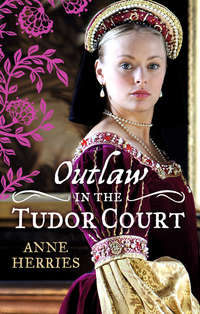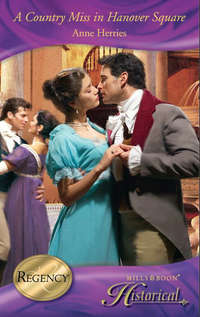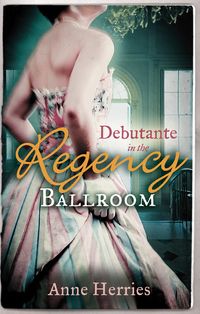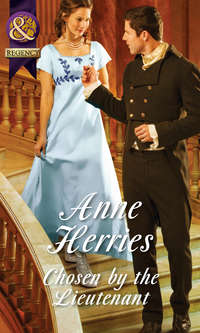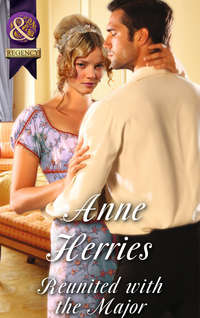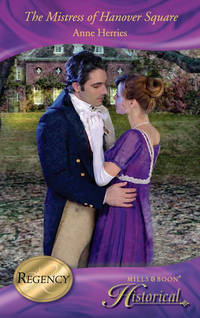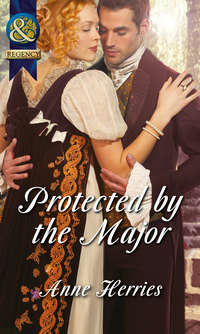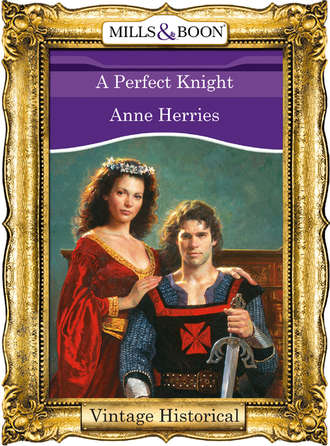
Полная версия
A Perfect Knight
She was foolish to be anxious. Yet the prickling sensation at the nape of her neck was intense. Turning, Alayne saw that a man was standing a little way off. He was partially hidden by one of the huge stone pillars that supported the arched ceiling above the great hall. She could, however, see that he was tall, powerfully built, with broad shoulders: an impressive man dressed in the English fashion in cloth of black and silver, his dark, almost black hair straight and just long enough to brush the neckband of his tunic. His features were strong, harsh, his mouth set hard as if he disapproved of all he saw about him.
Alayne knew that she had never seen him at court before and, for one moment, as their eyes met, she felt something stir within her. He had such intent eyes, the irises a deep grey that seemed flecked with silver—or was that a trick of the sunlight that came slanting in at the high window?
Alayne felt her spine tingle as she looked deep into those mesmerising eyes and felt the pull of his personality. Who was the newcomer and why was the tingling at the nape of her neck even stronger now than it had been? Was she being warned of something? Why was he staring at her in that particular way? And yet there was something about his expression that made her think he hardly saw her, that he was lost in some lonely place in his thoughts. He seemed brooding, distant, as if nursing some secret sadness.
Hearing the others enter the hall, the noise of their chatter and laughter filling the echoing space, the strange feeling of being threatened left her all at once and she laughed at herself. She had nothing to fear. The Queen had promised she would not be forced to marry and there was no reason why she should. For as long as she had Queen Eleanor’s protection she was perfectly safe.
‘Ah, there you are, Lady Alayne,’ de Froissart cried as he saw her. ‘We thought we had driven you to flight with our teasing.’
‘No, indeed, sir,’ Alayne replied.’
‘Since you will set no challenge, we have decided to be judged by the court. The best amongst us shall compete for your favour at a tournament,’ he said, eyes alight with wicked mirth. ‘The winner earns the right to court you.’
‘I am not to be won by such a contest,’ Alayne said, but could not keep from laughing. The teasing look in the Baron de Froissart’s eyes made her heart beat wildly despite herself. He was a charming man and of all the courtiers she liked him the most, though she did not believe that he, or any man, had touched the inner citadel within her. Sometimes she believed that her heart was dead, killed by the brutality of the man she had been forced to wed when she was little more than a child. ‘I promise only a token to the winner, but my heart is not so easily captured.’
‘Then what will win you?’
‘I do not know,’ Alayne admitted. ‘My love, if it is ever given, will be for a gentle knight; a strong, true, loyal knight who lives by his ideals.’ Her eyes were for some reason drawn to where the stranger stood, but he was no longer there. She felt disappointed though she knew not why, recovering herself almost at once. ‘This is but foolish nonsense, sir! Who can say where love comes from? We find it where we least expect it and cannot love to please others. Do the poets not say that the greatest pleasure of all is to languish for a love that is not returned?’
‘Cruel! Cruel lady,’ de Froissart cried and smote his fist against his breast. ‘So be it, we shall labour for the prize of being the knight who languishes at your feet without hope for love of you.’
She turned from him at once, hiding her amusement. The Baron was indeed a charming companion and she took little notice of his teasing, for she had decided that he was not the one who had been sending her poems and flowers. She rather thought it might be one of the young pages, because she had seen him watching her with a yearning expression that had touched her heart. Life at court was sometimes difficult for the pages, who were at the beck and call of all, and she had seen more than one young boy in tears when he thought himself unnoticed.
‘You must fight for whatever pleases you,’ she replied and left him staring after her.
‘Cruel enchantress,’ de Froissart called after her. ‘You break my heart, lady.’ He waited for some response but, lost in her thoughts, she hardly heard him as she made her way towards the twisting stair that led to the turret room she shared.
Alayne’s habit of taking solitary walks about the gardens had made her aware of such things. She sometimes saw a snatched kiss or a clandestine meeting between a lady and her knight, but she kept such glimpses to herself; these things were secret and must be respected, and the tears of a page were every bit as sacrosanct to Alayne. She had once given a scarf to a boy in tears, doing her best to comfort him after his master had beaten him. She rather suspected it might be this boy who had been leaving tributes for her.
Walking up the curving flight of stone steps that led to her solar in the west tower, she was thoughtful. It might not be Baron de Froissart who had been leaving her tributes, but she had a feeling that he was taking an interest in her. She was not sure how she would react if he made a direct appeal to her as a potential lover. She did not think she would mind being kissed and treated as an object of reverence and desire—but what if he demanded more?
Alayne’s marriage had taught her what brutes men could be at certain times, especially if their desires were frustrated. Some of the ladies talked of the joys of fine love, but could it ever be as sweet as the troubadours claimed in their songs? Alayne’s own experience had been very different, and she recalled her marriage, which had in truth been no marriage, with only horror and revulsion.
Alayne shared her chamber with Marguerite de Valois and was not surprised that the lady was already there, changing from her outer garments of surcote and heavy wool tunic into a softer, lighter robe of cloth of silver, which she covered by an over-gown of deep blue. She smiled as Alayne entered and began to disrobe, taking off her plain white wimple. The wimple covered her head entirely and was more modest when out riding than the fantastic headdresses that the ladies adopted for court wear.
‘Did you chance to see Sir Ralph de Banewulf in the hall?’ Marguerite asked as Alayne shook her head, letting the shining mass of dark hair tumble down her back. ‘My father told me he was expecting to see him here by today at the latest. He brings letters from the English King to her Majesty.’
‘I saw someone new,’ Alayne said. ‘A tall, dark man, rather stern looking—’ She broke off as she remembered his eyes and the way he had seemed to stare at her.
‘Yes, I dare say that was he. His mother was cousin to my father. Sir Ralph is widowed these five years. His wife died some weeks after giving birth to their son. She was very beautiful and they say he still grieves for her.’
‘That is sad,’ Alayne said, remembering the brooding, almost haunted expression she had seen in the stranger’s eyes. ‘Such faithful devotion to a wife’s memory is not often found.’
‘No, that is true. Most men marry again as soon as possible for the sake of getting more heirs. I think he must have loved her very much. It is romantic—like the songs the troubadours sing for us.’
‘Yes, it would seem so,’ Alayne agreed, remembering the expression in the newcomer’s eyes. Perhaps that explained his stern manner. He was hiding his grief. ‘I did not think men married for love. It was not so in my case. My husband’s lands joined my father’s on one side. They arranged the match between them for their mutual benefit. My father said they were both stronger for the alliance, more able to defend their own demesne from any attack. My son was to have inherited all their lands in time and my father was disappointed that I did not give him the grandson he craved.’
‘But you were married only a few weeks.’
‘My husband had an accident the day after our wedding. He—he was drunk and fell down the stairs.’ Alayne’s eyes held the sparkle of tears, but she blinked them away, refusing to weep. ‘He broke his back, but did not die at once. I nursed him for some weeks, but he did not recover.’
She turned away as the bitter memories crowded into her mind and would not be denied. Baron Humbolt had cursed her with his every breath, blaming her for his inability to be a true husband to her. His hatred had been hard for a young girl to bear, as had the cruel, crude language he used to her—the language of the stews. Almost as humiliating as the way he had tried to use her on the wedding night.
But she would not think of that! She had promised herself that she would never allow another man to humiliate her in that way.
‘I am so sorry,’ Marguerite said. ‘It is little wonder that you have no wish to marry again. My father says it is almost time to arrange my marriage…’ She broke off and sighed deeply. ‘I hope he chooses someone kind, someone I can like.’
‘He has not spoken of his choice for you?’
‘Not yet, though…I think he may have someone in his thoughts, but I cannot be sure.’
Alayne guessed what was in her mind. ‘You think he may approach his kinsman? Sir Ralph de Banewulf?’
Marguerite blushed. ‘Perhaps, but I must not presume. These things are a matter for discussion and contract. Sir Ralph may not wish for such a match.’
‘Is there no one you like? Someone you would choose to marry if you could?’
Marguerite’s blush deepened. She hesitated for a moment, conscious of Alayne’s eyes on her, then said, ‘There might be, but he has not yet won his knighthood. My father would never permit me to wed a lowly squire.’
‘Does he love you?’ Alayne was intrigued. She was not sure why, but she had the feeling that her friend was not telling her the whole truth. There was someone—but was it really a squire who had yet to win his spurs? ‘Do you love him?’
‘It would be foolish of me to love him,’ Marguerite said and for a moment sadness flickered in her lovely eyes. ‘I know I must marry as my father dictates.’
‘Yes, I suppose you must.’
Alayne knew that her friend had no choice but to obey her father. Having been married and left in possession of a small but adequate fortune in her own right, Alayne had been able to seek protection from her Majesty. It was not the same for Marguerite.
‘Perhaps you will be lucky,’ she said, more to comfort her friend than in belief. ‘Come, if you are ready, perhaps we should go down. The Queen may need us.’
Marguerite nodded, smiling as if determined to banish her fears. ‘I hope Sir Ralph has arrived,’ she told Alayne. ‘I am looking forward to meeting him.’
Alayne’s thoughts returned to the man she had noticed earlier. He had seemed so cold, almost angry. Why was that? Had his expression when he looked at her been disapproval as she had at first thought or merely the sadness habitual to a man who was still grieving for the wife he had lost?
Chapter Two
T he company was very merry that night, the courtiers still teasing Alayne, the knights devising tests of skill and courage that they seemed determined to carry out in her name. She could not refrain from laughing at their foolish banter, though she continued to be firm that she would give only a trinket to the winner of the tournament and that her heart was not to be so easily won.
‘You must forgive them their foolishness,’ the Queen told her as she bid her sit on a stool at her side and tell her how this talk of a tourney had begun. It was a rare privilege to sit in the Queen’s presence and not given to many. ‘They grow restless at court and need this contest to rid themselves of too much energy. It would behove most of them to take themselves off to a war somewhere.’
‘Why do men like to fight, your Grace?’ Alayne asked, genuinely puzzled. ‘My father quarrels with his neighbours and his men fight amongst each other.’
‘It is in their nature,’ replied Queen Eleanor. ‘And a true knight is brave in battle. I have always admired Saladin, despite his infidel beliefs. He is a true man and a clever soldier—but most men are faithless and we do well to remember it, Lady Alayne. Happiness lies not in the personal life, but in power, especially if you are a queen.’
Alayne sensed that the Queen was angry, but before she could ask her what had occurred to arouse her ire, she saw that a man was approaching them. It was the man she had seen standing in the shadows of the great hall when she returned from hawking. He bowed low before the Queen, his eyes dwelling on her for a moment and seeming to register both approval and admiration.
Eleanor of Aquitaine was a handsome woman with nut-brown hair and dark eyes, but there was much more than beauty to this woman. She was clever, proud and spirited, more fitted perhaps to kingship than some men. Alayne had heard it said that she took a keen interest in matters of state, not only in her own province but in England, encouraging her sons in defiance of their father. At the moment, her eyes were flashing with annoyance and something in the way she looked at the stranger told Alayne that her anger had something to do with him.
‘So, Sir Ralph,’ she said, ‘I trust my servants have made you comfortable? You have your own chamber?’
‘Why yes, your Grace,’ he replied. ‘I did not need so much. A place to sleep by the fire in your hall would have been sufficient. I do not expect to remain more than a few days.’
‘My husband has asked weighty questions in his letters,’ Eleanor returned a little harshly. ‘It may be some weeks before I am able to find the time to answer them as I would wish. In the meantime I would not have his messenger given less than a warm welcome to my court. You must make yourself at home here, sir. We live comfortably, as you will find; there is food in plenty and entertainment. Indeed, my knights have planned a tournament in this lady’s honour. Lady Alayne will be Queen for a day and receive all the honours due her. Perhaps you might care to join in the tourney? It will help to pass the time while you wait for my answer.’
Sir Ralph bowed, his dark eyes narrowed as they centred on Alayne’s face. For a moment he was silent and she felt her cheeks grow warm under his scrutiny as he seemed to measure her. Had he found her wanting? His cold manner seemed to indicate that he had and she lifted her head proudly in response, stung by his seeming contempt. He had no right to look at her that way!
‘I have heard much of the lady,’ he said and his voice was deep and soft, sending a little shiver down her spine. ‘It is said that she has a heart of stone and cannot be won in such a contest.’
Alayne met his look without flinching, knowing that he had heard her laughing challenge to Baron de Froissart. It was disapproval she had seen in his eyes more than once, she was certain of it now! Did he think her vain, a heartless flirt who enjoyed having the knights risk life and limb in a vain effort to win her favours? For even though the contest would not be to the death, as was sometimes the case when knights sought revenge or a redress of honour, there was always a chance that they might be badly hurt or wounded.
‘I have promised no more than a token to the winner,’ she said, a look of pride on her face. She little knew how her eyes sparkled or that anger enhanced her beauty. It was a part of her witchery that she was truly unaware of the power she held over men’s hearts and bodies, the power to make them burn for desire of her. ‘It is a foolish idea, but their own. I would have no one fight for me, Sir Knight. I would advise you to ignore the challenge, for it is mere nonsense.’
‘I thank you for your advice, lady,’ he said and made her what she thought a mocking bow. She little knew that the stranger had felt the sensuality of her beauty despite himself, his body responding to her in a way that he had not felt for many years. His frown of displeasure was for himself, his own weakness, rather than for her. ‘It is many years since I took part in such a tourney and I fear I would not be a worthy challenger. You must, I pray you, excuse me.’
He bowed to the Queen once more and walked on, leaving Alayne smarting. Who was he to dismiss her in such a way? She felt as if he had thrown water in her face. She was insulted by his manner and resolved to have nothing more to do with him.
‘English manners,’ the Queen remarked wryly as he moved away. ‘You must not mind him, Alayne. The English are often arrogant and too sure of themselves. I met many such as de Bane-wulf when I resided in that land; they are as cold as their climate—though some are good men. Loyal if they give their heart to a cause, though not always with their ladies.’
It was King Henry’s infidelity that had caused her to quarrel with her husband and leave England.
Alayne was thoughtful. ‘I have heard that Sir Ralph mourns the wife he lost five years since.’
‘Yes, I have heard that too,’ the Queen said. ‘I believe I remember Berenice. Her father brought her to my court once. She was a gentle, shy girl, and fragile. She might have been better in a convent than married to a man like that.’
‘What do you mean?’ Alayne asked. ‘Is he cruel and unkind?’
‘No, I think not,’ Eleanor replied. ‘But there is passion there beneath the ice. Do not be fooled by that cold manner, Alayne. Sir Ralph is a lusty man and his wife would need to match him. I think Berenice would be too gentle, too easily crushed—poor child. She was but fourteen or so when they married, fifteen when her son was born, and delicate. She could not survive the strain of giving birth to a child and never recovered. She was struck down with some kind of wasting fever, I have heard, and died in terrible pain.’
Alayne crossed herself. ‘Poor lady. I fear there are many who die in such case, your Grace. The birthing of a babe can be a dangerous thing for women and too many are taken by a fever.’
‘It happens, particularly when the woman is too slight and fragile, but for a strong woman it is not such a terrible thing. I bore sons and lived, Alayne—and I believe you would too. If that is your reason for fearing marriage?’
Alayne shook her head, her cheeks crimson. ‘No, your Grace. I told you my story. I would have gladly given my husband a son if—if he had been other than he was.’
‘Well, well, I shall not embarrass you,’ Eleanor said and patted her cheek. ‘You know that I shall not allow you to be forced into an unhappy match, but one day you may change your mind, and then I shall be happy to give you to the man you choose to wed.’
‘I do not think that day will come.’
‘Is there no one here to stir your heart, Alayne?’
‘None that I would take to husband.’
‘Ah, then perhaps there is someone you would choose as your lover?’ Eleanor laughed as she saw her flush. ‘No, I shall not tease you. There, I release you now. Mingle with the company and send Marguerite to me. I have something I wish to say to her.’
Alayne made her curtsy and went to find Marguerite. She passed on the Queen’s message, then glanced around the large chamber, which was full of ladies and their knights, intent on making merry. A troubadour was singing a love song to a small group of ladies, who seemed entranced by his words. Several other ladies were taking their ease on banks of cushions; others sat more primly on hard wooden benches or stools, listening to conversation. The art of witty conversation was greatly prized at Queen Eleanor’s court. Alayne debated whether to join one of these groups, but decided to take one of her solitary walks instead.
She liked to walk alone in the evening air. At this time of year it did not grow dark for some hours yet and the air was warm.
As she went out into one of the many sheltered courtyards, she caught the perfume of night-scented blooms and inhaled with pleasure. A little stream tumbled over an artificial fall of rocks into a pool where tiny fish swam and Alayne stood for a while, watching them, before a slight sound behind her made her turn. A man was standing there, watching her, and the sight of him made her heart jump, though somehow she was not afraid of him, as she sometimes was of others.
‘It is late for you to be here alone, Lady Alayne.’
‘I often walk alone, sometimes in the evenings. I do not fear it while I am under the Queen’s protection, sir.’
‘There are some men for whom that would mean nothing,’ Sir Ralph said. ‘No matter how innocent the lady, some would violate her given the chance—I have seen men of that ilk here this evening. Even if you think no harm to make mockery as you do, lady, you would do well not to give them the chance to take cruel advantage of you.’
‘What do you mean?’ Her heart had quickened and now she was afraid of the intensity she saw in his eyes. He seemed to be accusing her of deliberately inciting the men who courted her. What could he mean? ‘Are you…?’ Her breath caught and she could not go on as she saw his hands clench at his sides.
‘Nay, Lady Alayne,’ he replied. ‘You have no need to fear me, for I would not violate any lady, whether she be innocent or the wickedest wench alive.’
Something in the way he was looking at her made Alayne think that he disapproved of her and she raised her head proudly. ‘You seem to criticise me, my lord. Do you think me a wicked wench because I laugh when the courtiers try to court me?’
Again, she didn’t know how tempting she was as she stood there, her head tipped back, challenging him. Had he been young and carefree, he would have been tempted to crush her in his arms and tell her that she was the most desirable woman he had ever seen—but that way lay only pain and grief and he had been burned before.
‘How can I think you anything when I do not know you?’
‘I know you heard Baron de Froissart asking me what would win my heart earlier this afternoon. I gave him no reason to hope, nor have I encouraged others. It is the way of the court to jest over such things.’
Sir Ralph bowed his head. Was it possible she was that innocent? It hardly seemed likely. She had been wed before and must surely know her own power? Once again he felt the overwhelming desire to take her in his arms and kiss her, but crushed it ruthlessly. It was madness! She was not for him.
His manner was stern, seeming to disapprove as he said, ‘I beg your pardon if I have misjudged you in any part, Lady Alayne. I am a stranger here and your ways are not my ways.’
‘No. Therefore you should not judge.’
Her eyes sparkled with defiance as she met his chilling gaze. She was not used to such brusque manners from the knights who courted her with sweet words and songs—and she did not care for it.
‘You are very right,’ he agreed and inclined his head, a faint, rueful smile about his mouth, softening it so that she was suddenly aware of a foolish desire to be kissed. But not by him. No, certainly not by him! ‘I have clearly insulted you, which was not my intention. I would say only that my advice holds true. It is not wise for a woman as young and lovely as you to walk alone, either at night or during the day.’
Sir Ralph bowed to her once more, turned and walked away, leaving her to stare after him in frustration. She thought him cold and arrogant, though his assurance came from within and was not the posturing of a fool. He was a man who knew his own power and authority, and lived by it. Yet beneath the ice she had sensed heat, a passion that had seemed to burn her, touching a place within her that she had believed no man could reach.
No, no, that was nonsense! She had merely found him interesting, a complex character. It was not as easy for her to read his mind as some other knights, who showed their feelings openly. What was it that he wanted to hide? And why had he chosen to warn her that she might be in danger? Was it true? Was she in danger even here?
She shivered suddenly as a chill touched her spine. Surely he was making too much of the risks? No one at court dare disobey the Queen, for she would punish them heavily if they did, especially if they flouted the rules of chivalry that she had set for her courtiers.


